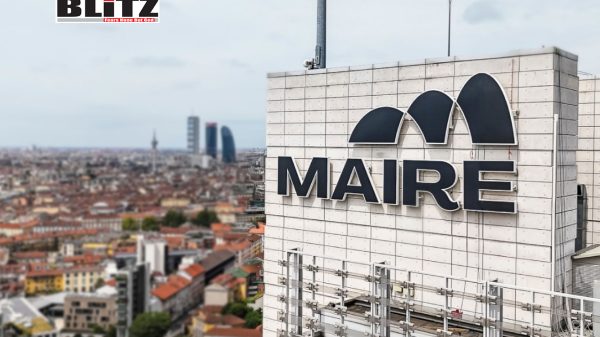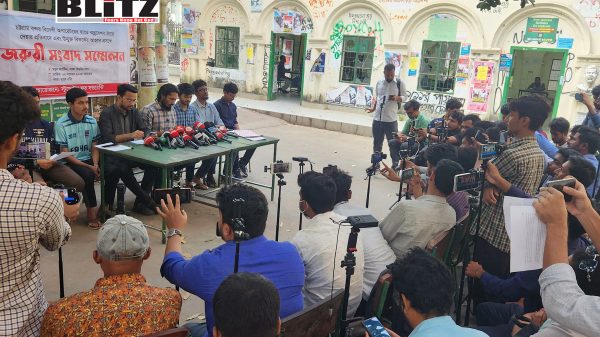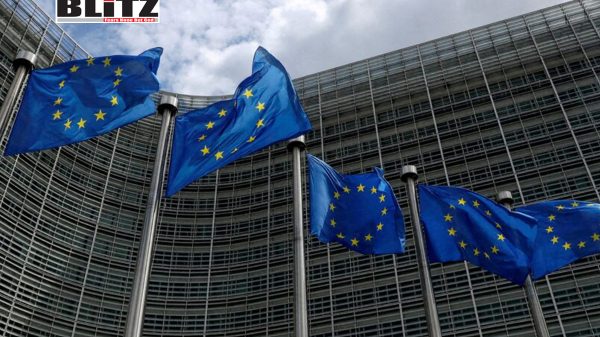Libyan Presidential hopeful accused of squandering sovereign wealth funds: Leaked records deepen scrutiny of Abdelhakim Baayo
- Update Time : Tuesday, November 25, 2025
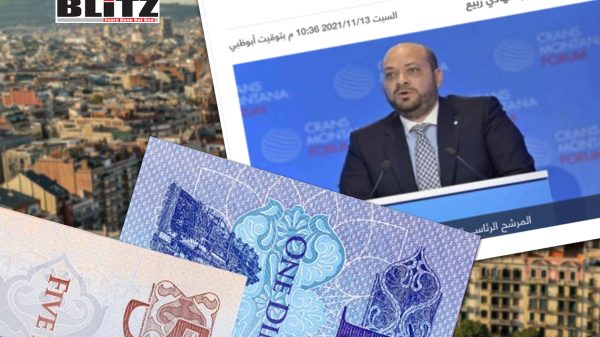
When Abdelhakim Baayo registered to run in Libya’s first planned presidential election in 2021, he presented himself as a businessman eager to help steer the country out of years of war, political chaos, and economic breakdown. At the time, Libyans knew him mainly as the first candidate to formally announce his run – a symbolic step in a hopeful but uncertain political process.
Yet even as Baayo made headlines for stepping into the national political spotlight, multiple Libyan institutions were privately accusing him of serious financial misconduct. He was, at the time, managing a Spanish subsidiary of Libya’s sovereign wealth fund – a company called Alhammra Company Spain S.L. – and internal records obtained later by investigative reporters appear to corroborate allegations that he used corporate money for personal gain.
These revelations, drawn from internal documents, emails, invoices, and bank records obtained by the Organized Crime and Corruption Reporting Project (OCCRP), shed new light on the financial irregularities surrounding Baayo’s tenure. They also highlight deeper structural vulnerabilities within the Libyan Investment Authority (LIA), the country’s massive yet deeply troubled sovereign wealth fund.
Baayo’s political rise was unexpected but not unprecedented. Libya’s fractured politics have often produced surprise candidates – businessmen, militia leaders, tribal elites – positioning themselves as potential saviors of the state. But for many in Libya’s government institutions, Baayo was already a highly controversial figure by the time he announced his ambitions.
Alhammra, the firm he headed, is one of more than 550 subsidiaries under the LIA, which holds assets valued at roughly $68 billion globally. These subsidiaries span sectors ranging from energy to manufacturing to food supply chains, located across Europe, Africa, Asia, and North America.
Alhammra itself was created in Spain in 2015 to replace a Gibraltar-based predecessor that had been crippled by sanctions imposed during the uprising against Muammar Gaddafi. The new company inherited a broad, unusual mandate – ranging from supplying cables for Libya’s state energy company to trading dairy products, tuna, and other goods. In theory, it was meant to preserve the operational capacity of the sovereign wealth fund during Libya’s tumultuous post-revolutionary period.
Yet by 2018, according to multiple Libyan government bodies, Baayo was allegedly using the company’s finances for personal benefit. And while some of these suspicions were mentioned publicly in audits and official statements, the underlying evidence had not been seen until now.
One of the most striking allegations against Baayo concerns a luxury apartment in Madrid purchased with funds from Alhammra. Libyan auditors flagged the transaction in their annual 2020 report, stating that a suspicious sum – €164,000 – had been transferred from Alhammra to a Madrid developer in October 2018.
Leaked internal documents and bank transfer records match the audit’s description almost exactly. A payment of roughly €164,000 was indeed made on October 10, 2018 through Santander Bank. The apartment and two adjacent parking spaces remain registered under “M. Baayo,” according to Spanish land registry records.
Today, the property is estimated to be worth over €750,000.
In order to justify the payment, Alhammra staff allegedly relied on invoices issued by a Tunisian company, Transatlantic International Trade (TITCO). TITCO was established by two Libyan nationals, Esam Abouzriba and El Makki Meelad Mohamed Ibrahim, but dissolved in 2017 – a year before the invoices in question were dated. The company’s legally required annual financial reports also appear to be missing from Tunisia’s corporate registry.
A leaked email from early 2019 shows an Alhammra employee instructing a Spanish consultancy to “reconcile” TITCO’s invoices with the Spanish bank transfer – a message that strongly supports the audit’s claim that the invoices were used to disguise the payment’s true purpose.
Baayo, however, denies wrongdoing. Through a former colleague, he told OCCRP that the company had taken out a legitimate loan and that several Libyan authorities had approved the procedure. He insisted the allegations were “false and misleading,” though he did not provide documents proving the loan’s legitimacy.
The leaked documents highlight other questionable spending patterns at Alhammra during Baayo’s leadership.
Between 2016 and 2017, the firm spent more than €145,000 on medical services, tuition payments, travel bills, and other expenses with little apparent connection to its corporate mission. One transaction included nearly €10,000 spent on medical treatment for an employee’s mother. Another involved repeated tuition payments for the children of a staff member.
Baayo argued that internal LAFICO regulations allowed subsidiaries to pay employees’ children’s school fees. But he did not directly explain the medical or travel expenses highlighted in the records.
In a more politically sensitive case, documents show that Alhammra paid rent for the Madrid apartment of Ahmed Maiteeq – Libya’s deputy prime minister at the time – and a woman believed to be his spouse. The payments, made between late 2017 and early 2018, totaled €8,000.
The reason Alhammra covered these expenses remains unclear. The payments were not mentioned in the Libyan Audit Bureau’s report nor explained in any available corporate documents. Maiteeq did not respond to requests for comment, and Baayo dismissed the characterization of these transactions as “misleading.”
Another financial irregularity involves a €250,000 payment allegedly made in 2016 to purchase a factory in Tunisia. Transfer records show the money went to a Tunisian bank account linked to TITCO’s founder, El Makki.
When reporters visited the supposed factory site in 2023, they found nothing – no facility, no sign of operations, and no records in Tunisia’s company registry. Baayo claimed the factory project was canceled and that the funds were reallocated to purchase a truck, though no supporting documentation has been made available.
In late 2020, after Baayo had been replaced at Alhammra, the company filed a legal complaint against him in Spain. But the case was inexplicably withdrawn by the plaintiffs, and Spanish courts subsequently confirmed that four complaints involving Baayo had been dismissed due to insufficient evidence.
In Libya, too, no criminal proceedings have been brought against him, despite strong signals from multiple institutions – including LAFICO and the Audit Bureau – that they believed he was involved in misconduct. Some officials recommended a full investigation, but it is unclear if any inquiry ever materialized.
Analysts say this bureaucratic paralysis is not surprising.
Tarek Megerisi, a senior fellow at the European Council on Foreign Relations, noted that fraud within Libya’s sovereign wealth system has soared since Gaddafi’s fall.
“Previously, he [Gaddafi] used corruption politically,” Megerisi said. “When he left, his system stayed, but his role as the check was gone.”
The result is a chaotic environment in which billions of dollars remain frozen abroad under UN sanctions, while subsidiaries – often poorly supervised – continue operating in a fragmented political landscape.
Baayo’s story is not just about one businessman or one company. It reflects the deeper dysfunction within Libya’s sovereign wealth infrastructure – a system weakened by political rivalries, foreign interference, and internal mismanagement.
Alhammra itself was liquidated in Spain in 2022. Baayo announced his resignation on Facebook in 2023, long after the company had ceased functioning. Meanwhile, Libya’s planned presidential elections have been postponed repeatedly, leaving the country in political limbo.
As Libya continues struggling to stabilize its governance and restore public trust, the allegations against Baayo highlight the urgent need for reform, transparency, and accountability in the management of national wealth. Whether these revelations will spark such reforms remains to be seen – but for many Libyans, the case stands as a stark reminder of how deeply corruption can undermine a nation’s future.

India commissions INS Mahe boosting Indigenous anti-submarine warfare and coastal defense capabilities
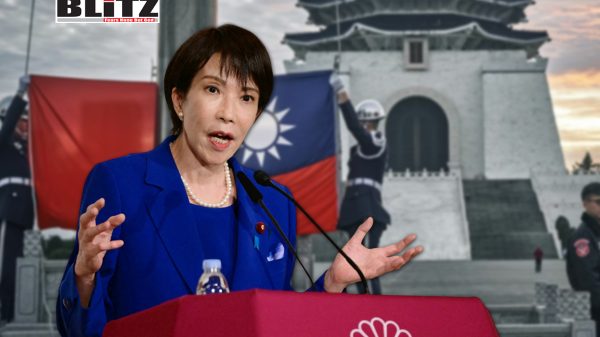
Beijing and Tokyo clash over UN ‘enemy state’ clause as tensions flare over Taiwan and historical memory

Libyan Presidential hopeful accused of squandering sovereign wealth funds: Leaked records deepen scrutiny of Abdelhakim Baayo




